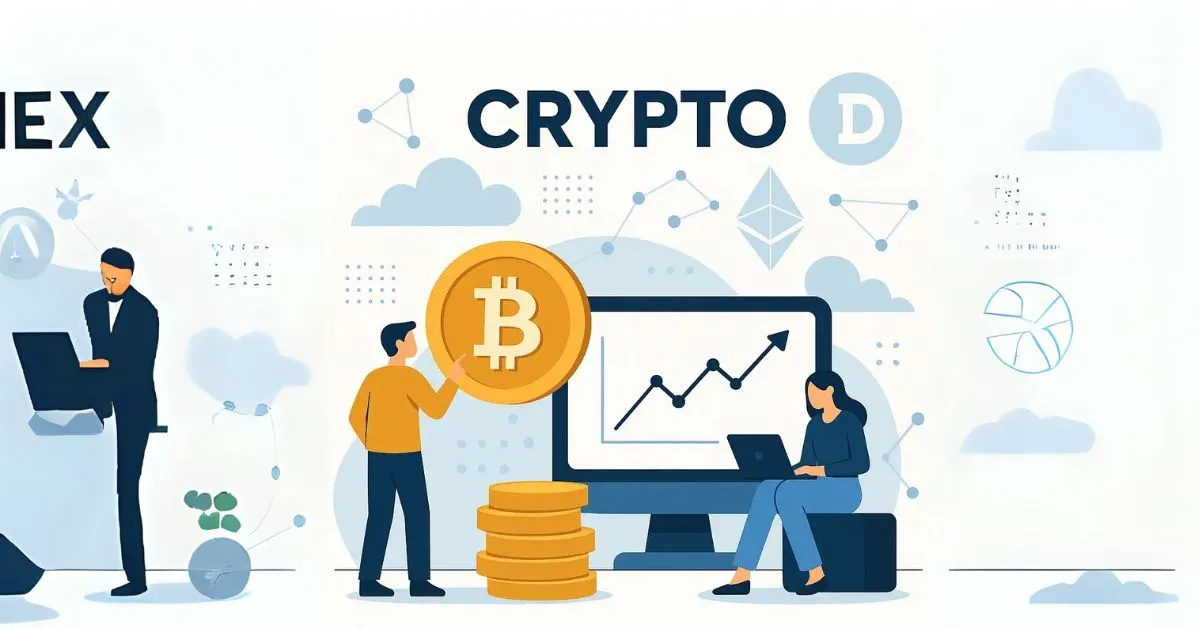
What is Crypto? Explanation of Cryptocurrency for Beginners
1. What is Crypto?
Crypto (short for Cryptocurrency) is a form of digital currency issued by blockchain-based projects. It utilizes cryptography to secure and verify transactions. Crypto can serve various functions including store of value, payments, trading, mining rewards, and participating in project governance or ecosystems.
2. Types of Crypto in the Market
Crypto comes in many forms with various terms like altcoin, memecoin, large-cap coin, mid-cap coin, low-cap coin, stablecoin, and even shitcoin. In this article, we’ll focus on two primary categories:
• Coin: A cryptocurrency developed and operated on its own native blockchain. It functions independently.
• Token: A digital asset issued on an existing blockchain (e.g., Ethereum, BNB Chain) and does not have its own blockchain.
Each type serves a unique purpose, so it's important to understand them before investing.
3. Is Crypto Safe?
The crypto market is a relatively free and decentralized ecosystem, with minimal government control. While this fosters innovation and attracts large capital, it also brings significant risks. Opportunity and danger go hand in hand here.
Unlike traditional finance, crypto transactions are irreversible. Once confirmed, they cannot be canceled. Users are fully responsible for their actions a small mistake could mean losing an entire portfolio.
The legal status of crypto remains unclear in many countries. Some classify it as a security, others see it as currency, and some ban it entirely. This regulatory uncertainty makes the market vulnerable to sudden crackdowns.
The lack of transparency and legal framework makes crypto a breeding ground for scams, rug pulls, and fraud. Without sufficient knowledge, new users can easily become victims.
Many investors rely on centralized exchanges (CEXs) or custodial wallets to store assets. This increases the risk of losing funds if the exchange is hacked, frozen, or collapses.
In addition, bugs in smart contracts can cause massive losses. That’s why security audits and code reviews are critical, especially in DeFi and NFT projects.
Market manipulation is also a serious issue. Whales, fake news, and FOMO-driven communities can influence prices dramatically, causing inexperienced investors to buy the top and suffer losses. This is why knowledge and emotional control are essential.
Despite the risks, crypto has demonstrated real utility and growth potential. With fast, borderless transactions, strong security, and decentralization, crypto offers a brand-new financial experience.
Users can trade crypto easily through centralized platforms like Binance or Huobi, or use decentralized exchanges like Uniswap or PancakeSwap. Assets can be stored in hot wallets (online) or cold wallets (offline and safer).
To stay informed, it’s critical to follow reliable sources: CoinDesk, CoinMarketCap, Binance Research, Messari, DeFiLlama, Twitter, Telegram, and more. These platforms provide real-time updates and in-depth analysis.
Crypto offers massive opportunities but it’s also a place where advanced scams thrive, from phishing, fake tokens, dusting attacks, to deceptive "sign-to-steal" wallet schemes. In crypto, earning money is hard keeping it is even harder.
There are many ways to earn in crypto: trading, holding, airdrops, mining, staking, yield farming, lending, borrowing, etc. You can also build a career in crypto as a designer, developer, marketer, or market analyst.